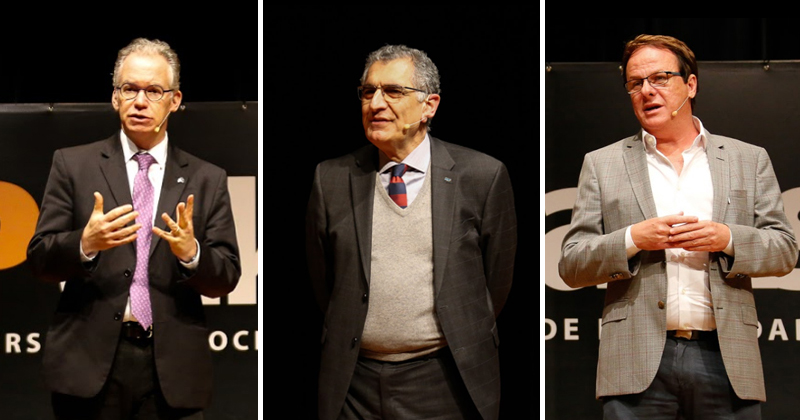DARWIN DECLARATION
The Network: Towards Unity for Health (TUFH) an official non-state actor of WHO, is an international organization that works with national, state, and community partners to foster equitable community-oriented health services, education and research with the goal of improving health locally and globally. The participants of TUFH 2019 in Darwin, collectively, as a result of the Global Solutions Challenge Inclusive Process, curated and endorse the following declaration.
ACHIEVING EQUITABLE HEALTH CARE BY RESPONDING TO POPULATION HEALTH NEEDS Whereas,
1.The world desires and the future deserves Universal Health Coverage and Equitable Health Care for ALL;
2.Universal Health Coverage and Equitable Health Care for the disadvantaged, neglected, and minorities rarely exists;
3.The voices of marginalized populations including but not limited to First Nations, Indigenous, Elderly, Women, Migrants and Refugees, and people living in remote and rural areas are not adequately represented or invited to the table where health, system and funding decisions are made;
4.Non-health sectors are not adequately represented or invited to the table where health, system and funding decisions are made;
5.There is often a disconnect between the wisdom and ideas of the elders and the youth where both voices are often lost in healthcare discussion;
6.Institutions who adopt and implement social accountability and interprofessional education and practice standards aren’t recognized;
7.Climate change is increasingly effecting the environment, health and healthcare;
8.Health Education and Training is rarely tailored to, addresses community needs, or informed by community implementation;
9.Global siloed policy recommendations, consuming the majority of financial resources, are majorly ineffective as they are not developed with and by the communities they are targeted to impact and do not often engage and support the work of local clinicians and teams.
We collectively declare we will work toward inclusiveness, education, and advocacy.
We will work toward INCLUSIVENESS defined by:
1.A global effort of caring for each other returning the human spirit to health care including community voices, culture, lived experiences, empathy, and compassion.
2.Frequent and consistent communication in the creation of priorities for local action between and within the health sector both regionally and globally and with and for the people and communities of the world.
3.Frequent and consistent communication in the creation of joint priorities of action beyond the health sector with non-health sectors.
We will work toward EDUCATION defined by:
4.Alternative health practitioners (e.g. community health workers) and emerging healthcare professionals are engaged, competently trained, certified, and represented in health workforce policies and practices.
5.The next generation of health workforce leadership is prepared by creating greater opportunities for students with mentorship being one of the opportunities.
6.Capitalize on the advancement of technology to enhance the sharing and education for academics, health workers and students regionally and around the world.
7.Healthcare Education is tailored to and addresses community needs and incorporates community best practices (e.g. field case studies) reflecting what people are doing and not publishing. This includes the formation of additional health education and training platforms from communities, in communities, by communities, and for communities.
We will work toward ADVOCACY defined by:
8.Advocacy to ensure the voice of marginalized populations including but not limited to First Nations, Indigenous, Elderly, Women, Migrants and Refugees, and people living in remote and rural areas are adequately represented at the table where health, system and funding decisions are made.
9.Provide international structures and systems for the structural implementation of Social Accountability (e.g. curriculum accreditation that responds to and does not increase disadvantages).
10.A global effort recognizing the climate change and its impact on the environment, health, and healthcare.
11.Demonstrate through evidence that Social Accountability, Interprofessional Education, and the Integrated Health Team create positive impact toward students, health professionals, and community.
12.Support the certification and recognition of institutions as the global leaders in implementing Social Accountability, Interprofessional, and Population Health that includes, at a minimum, the standards as listed below:
•Policies, curricula, and regulatory standards that promote social accountability, community involvement, and interprofessional education and practice;
•Environmental Impact of Healthcare including the monitoring waste production, efficiency, challenging the need of single use devices;
•Inclusion of the student and patient/community voice in the development of policies, curricula and regulatory standards;
•Holistic approach in delivering quality health that includes the healthcare team driven by patient goals verses silos.
•Ensure training from communities, in communities, by communities, and for communities.
TUFH commits to be a vibrant and effective network of networks that realizes, implements, and assesses the effectiveness of the above actions.

















